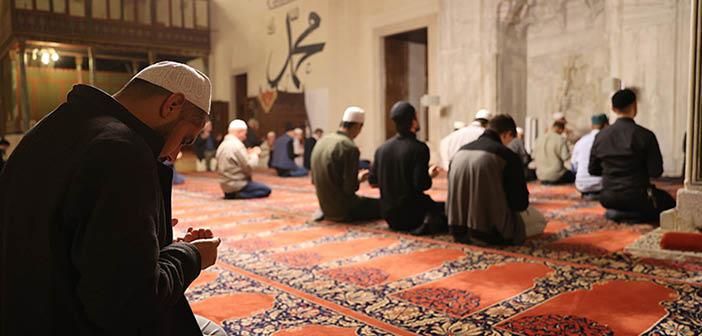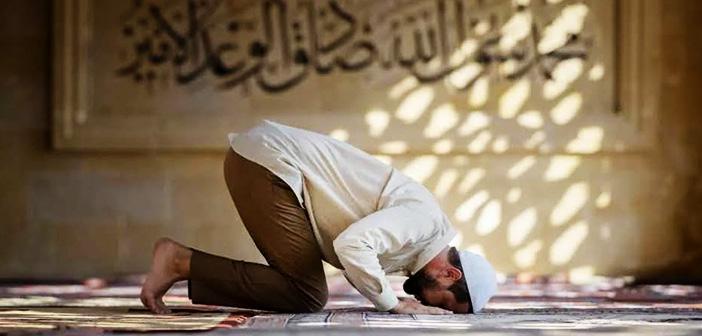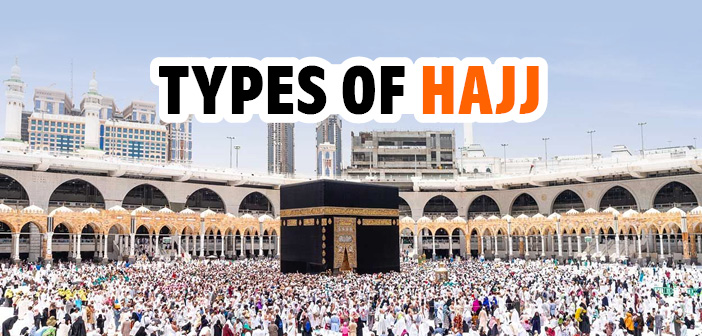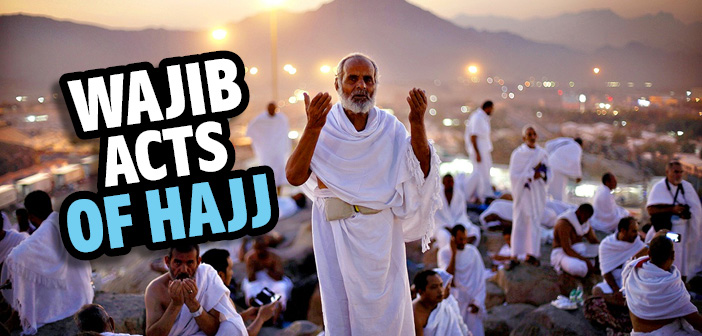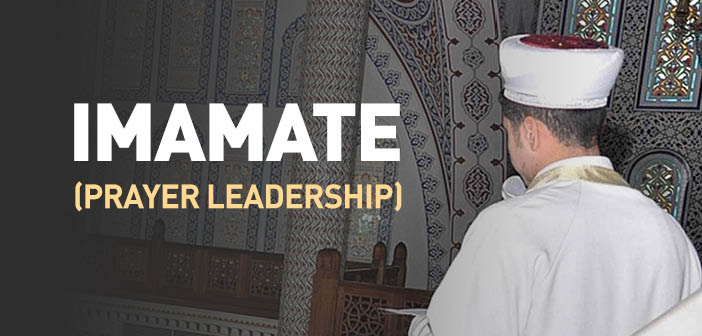
Imamate (Prayer Leadership)
What is the imamate? What is the concept of imamate?
A person who is followed in a good or bad deed is called an imam. The following is stated in the Qur’an: “and made them leaders who would guide [others] in accordance with Our command.”[1], and “And we made them (but) leaders inviting to the Fire...”[2]
The Imamate is divided into two types; imamah al-kubrā (grand imamate, the head of the Islamic State) and imamah al-sughrā (prayer leadership). The grand imamate is to have general guardianship authority over the society. Or, this imamate is the general presidency on both religion and world affairs as the caliph to the Prophet. The famous Muslim jurist of public law, al-Mawardī (d. 450/1058) said the following on this subject: “The imamate is a position set for the caliph of the prophet in order to protect religion and manage the worldly affairs.”[3] To be qualified for this position, the following conditions must be met: Being Muslim, intelligent, adolescent, male, knowledgeable, and just. It was considered makrūḥ to bring a sinner to the presidency, and the dismissal of such a person was examined within the context of whether there would be mischief or not.[4] Since our main subject is the imamate of prayer, we will explain this in detail below.
A) Requirements of Prayer Leadership
1) Being a Muslim:
There is a consensus that the imamate of an unbeliever or an apostate is not valid. If this is identified after the ritual prayer, the congregation must perform the prayer again.
2) Being Sane:
Prayer to be performed behind a mentally ill person is not valid. This is because the prayer that a mentally ill person performs by himself is not considered valid. If the insanity comes and goes in seizures, the prayer when the person is sane is considered valid. However, it is makrūḥ to follow such a person. A senile and drunk is like a mentally ill person, and since their prayers are not valid, the prayers performed behind them will not be valid, either.
3) Being Adolescent:
According to the majority of the Ḥanafis, it is not valid for a child who has not reached puberty to be an imam for people who have reached the age of puberty in obligatory or supererogatory prayers. According to the Malikis and the Ḥanbalis, this is not valid for obligatory prayers only. It is permissible in supererogatory prayers such as solar eclipse and tarawīḥ prayers. According to the Shafiʿis, it is permissible for an adult to follow a boy who has reached the age of discernment between the age of seven and puberty in any obligatory prayer except the Friday congregational prayer. Involuntary prayers, by contrast, an adult may follow the leadership of a boy who has reached the age of discernment according to all of the schools except the Ḥanafis. This is because it was narrated from Amr Ibn Salama (ra) that he said: “I led the prayers as imam during the time of the Prophet (saw) when I was seven years old.”[5]
4) Maleness:
Another condition for the validity of prayer leadership is confirmed maleness; hence, a woman may not validly serve as the prayer leader, nor may a hermaphrodite if those being led in prayer are men. However, if those being led in prayer are women, the imam doesn't need to be a male. Rather, it is permissible for a woman to act as an imam for other women or for hermaphrodites according to the Shafiʿis and the Hanbalis.
According to Ḥanafis, it is makrūḥ for women to pray alone in a congregation without men, even if it is tarawīḥ prayer. If women pray in congregation among themselves, the woman who will be the imam stands between them and does not stand in front of the row, which is makrūḥ. Only the funeral prayer can be performed by a women’s congregation, for it is a prayer that is not repeated.
That it is makrūḥ for women to pray in congregation in a women's community behind a female imam is based on the following hadith,: “It is more excellent for a woman to pray in her house than in her courtyard, and more excellent for her to pray in her private chamber than in her house.”[6]
On the other hand, there are also hadiths stating that women can perform the obligatory prayer with the imamate of a woman. Ali (ra) narrates, one day we went to Umm Salama’s house with the Messenger of Allah (saw). Women were praying at home. The Messenger of Allah asked what prayer they were praying. When Umm Salama said that they were performing the obligatory prayer, he said, “O Umm Salama! Shouldn’t you be the imam for them?” Umm Salama said, “Yes, that would be more appropriate.” The Prophet (saw) said: “In that case, you will not stand in front of or behind them in the row, but in the middle of them. So that they will be on your right and on your left.”[7]
According to the Malikis, it is not permissible for a woman or for a hermaphrodite to serve as an imam for anyone, man or woman regardless of whether the prayer being performed is obligatory or voluntary. Rather, they hold that maleness is always a condition for valid prayer leadership regardless of the gender of those being led in prayer.[8]
Women’s call to prayer is also not permitted. Because the adhān is to call the congregation. If it were not makrūḥ for women to pray in congregation behind a female imam, it would be permissible for them to call the adhān. Again, based on the same principle, it is permissible for women to go to prayer regularly during the day when they are safe from the danger of mischief (fitna).
It is also makrūḥ for a man to lead an all-female congregation in a house where there is no other man other than himself, or a mahram such as his wife, sister, or aunt. If one of these mentioned women is among the women’s community or if a man leads women in prayer in the mosque, being an imam for such a congregation is not makrūḥ. This is because the Messenger of Allah (saw) forbade men to be alone with non-mahram women.[9]
5) To be in the state of wudu and to be clean:
If an imam later realizes that he has led the prayer being in the state of minor or major impurity, he and the congregation who have been informed about this situation must perform the prayer again. Because, according to a narration from ‘Amr Ibn Dinār, it is reported that Ali (ra) led a prayer in the state of major impurity (janabah) or in the state of minor impurity (without being in the state of wuḍū) and that he and the congregation performed this prayer again.[10] According to the majority of jurists, whether a person knows about this situation or not, does not affect the result. According to another view, if the imam cannot inform the congregation about this situation, it will be sufficient for him to perform it again.
6) Not Being the Congregation of Someone Else:
According to the Ḥanafis when a person who follows an imam after missing some cycles (masbūq) gets up to complete the cycles that he missed, it is not permissible for someone else to follow him. For this person was actually a part of a congregation of someone else in prayer. In other words, he constructed his opening takbīr upon the opening takbīr of that imam.[11] According to the Malikis, if someone prays behind another person who arrived in time to perform one cycle with the imam, his prayer will be considered invalid regardless of whether the person following the other arrived late or not.
According to the Shafiʿis, it is not permissible to pray behind another worshiper as long as the latter is himself being led in prayer. However, if one worshiper prays behind another as his imam after the latter's imam has concluded his prayer, or after he has made it his intention to part with his imam - given that the intention to part with one's imam is permissible in the Shafiʿi view-it will be permissible for him to pray behind him as his imam. This ruling applies to all ritual prayers other than the Friday congregational prayer. Like the Shafiʿis, the Hanbalis hold that it is not permissible to pray behind another worshiper who is being led in prayer as long as the latter is himself being led in prayer. However, if this worshiper arrived late for the prayer, it will be permissible for someone else to follow him once his imam has concluded his prayer. The only exception to this ruling is that in the Friday congregational prayer it is not permissible for one person who arrived late to follow another person who arrived late as his imam.[12]
7) Not to have any chronic problem which invalidates his state of ablution:
According to the Ḥanafis and the Ḥanbalis, the imam should not have chronic problems invalidating his state of ablution such as constant nosebleeds, constantly passing gas, and not being able to hold his urine. A person with such a chronic state can only act as an imam for people who have such chronic problems like himself. This is because the Prophet (saw) implicitly led his Companions in prayer on a rainy day. After all, they could not prostrate on the ground.[13] Based on this tradition if the chronic problems of the imam and the congregation are different, the prayer is not permissible. For example, if a person who has an incessant urine flow problem follows an imam who has the same urine flow problem, the prayer is considered valid. However, if the imam has another chronic problem as well such as constantly passing wind, the person with only one excuse cannot comply because the imam has two chronic problems, and the person who follows him has only one.
As for the Shafiʿis, they hold that if the condition from which the imam suffers does not require him to repeat a given prayer, his prayer leadership will be valid even if the person being led in prayer is free from such a condition.[14]
8) The Imam should be literate:
In order for prayer leadership to be valid, the prayer leader must be literate if the person being led in prayer is literate. Hence, it is not permissible for an illiterate person to lead a literate person in prayer, the fundamental condition for ‘literacy’ being that the imam is able to recite those words and phrases without which the prayer itself will be invalid. Thus, for example, if the imam of a given village is able to recite those words and phrases without which the prayer would not be valid, it is permissible for an educated person to pray behind him. However, if the imam is illiterate, he may only serve as a prayer leader to someone who is illiterate as he is, regardless of whether there is a literate person who would be able to lead them in prayer or not. This is the view of the Shafiʿis, the Ḥanafis, and the Hanbalis. According to the Malikis, it is not permissible for an illiterate person who is unable to recite the Fatiḥa to be led in prayer by someone like him if there is a literate person available; rather, both of them should follow the literate person in prayer and if they fail to do so, their prayer is considered invalid.[15]
9) The sitting and standing status of a person being led in prayer behind his imam
Another condition for the validity of prayer leadership is that the person being led in prayer does not stand or sit behind his imam; if this happens, both the prayer and the prayer leadership associated with it will be invalid. This ruling is agreed upon by the Shafiʿis, the Ḥanafis, and the Hanbalis. According to the Malikis, following someone else as one’s imam does not require that the person or persons being led in prayer not move ahead of the imam. Rather, even if one or all of those being led in prayer were to move ahead of the imam, their prayer would remain valid according to the most widely acknowledged view among the Malikis. At the same time, however, it is considered undesirable to move ahead of the imam unnecessarily.[16]
B) Who is Most Entitled to Serve as Imam
Since it was accepted that the leadership of people in many matters, including prayer, belonged to the administrators within the Islamic societies during the historical process, the imamate of prayer was also left to them, and when the most qualified people to be imams were listed in classical sources of Islamic law, the ones who were listed at the top of the list were the administrators of that region. If this order is applied to today’s administrative structure, the worthiest people to be imams are the governor, district governor, police chief, and judges respectively. However, since the prayer leadership and muezzin have become a profession today, although the symbolic priorities of the specified rulers continue, the imam, who is now the official office of that mosque, leads the prayer in the mosque.
If prayer is to be performed outside the mosque or in a masjid without an appointed imam, then there will be a need to determine the person who is qualified to be an imam.
Even though there are slight differences among the schools of Islamic law regarding the preferred criteria of prayer leadership, the following principles are usually counted when determining who will be the imam for the congregation:[17]
- If a congregational prayer is to be performed in a house, the owner of the house or the person to whom he gives permission should be the imam.
- The most knowledgeable of the rulings on ritual prayer with respect to its validity and/or invalidity, and the most skilled at Qur’anic recitation. The Prophet (saw) said, “Let the one who knows the book of Allah best lead the congregation. If they are equal in reading, let the imam who knows the sunnah best, act as imam.”[18]
- To prefer the one who avoids doubtful things the most and is the most pious and conscientious person (ṭaqwā). The characteristic of taqwā is achieved by avoiding ḥarām, makrūḥ or doubtful things and paying attention to farḍ, wājib, sunnah, and mustaḥab. The Messenger of Allah (saw) said,
“If you want your prayer to be accepted, let your scholars lead you. For they are the messengers between you and your Lord.”[19]
- Preferring the older ones as imams. Because the old one has more fear of Allah and causes the congregation to increase. The Prophet (saw) said to Ibn Abi Mulayka (ra): “the oldest one amongst you should lead the prayer.”[20]
- The morally superior, that is, the one who gets along well with the community, has the right of priority. If there is equality in this matter, the one with the more beautiful face is preferred. What is meant by this is the one who performs tahajjud prayers a lot. For the face of the person who performs tahajjud prayer is considered to be bright and beautiful.
- Preferring the one with beautiful lineage, voice, and cleanliness of clothes.
If the head of the Islamic State is among the congregation, the head of state is put forward, then the governor, then the judge, and then the owner of the house. Even if this person is not an owner but a tenant, this is the rule.
On the other hand, if the owner of the house or the imam in charge is among the congregation, they are preferred to others even if they do not have the required qualifications. A person who will pray alone in someone else’s house should also get permission from the owner, this is the virtuous way to act.
All these principles show the importance given to the imamate. This is why the first four caliphs and in the following centuries, high-ranking public officials fulfilled this honorable duty.[21]
C) Persons Who Are Considered as Makruh to Serve as Imam
Since the imam leads the prayer on behalf of the congregation, in a way, he stands before Allah Almighty for both himself and his congregation. Therefore, the weakness of certain beliefs and the lack of certain deeds in him also affect the prayer of the congregation.
Those who are considered as makrūḥ to be imams are as follows:[22]
1) Imamate of a Fāsiq: A person who abandons the farḍ acts or commits ḥarām is called a fāsiq (immoral or sinner) or an ʿāṣī (rebel or disobedient). According to the Ḥanafis and the Shafiʿis, it is considered makrūḥ for a fāsiq to be an imam even if he knows the rules of prayer well. However, it is permissible for him to lead a community. The fact that the imamate of a fāsiq is makrūḥ is based on the following hadith, “No woman should be appointed as imam over a man, no Bedouin should be appointed as imam over a Muhajir, no immoral person should be appointed as Imam over a (true) believer unless that is forced upon him and he fears his sword or whip.”[23] However, the prayer led by a fāsiq person is still accepted as valid. It is reported that Abdullah Ibn ‘Umar (r. anhuma) continued to pray behind Hajjaj. The Messenger of Allah (saw) said, “Perform prayers behind anyone who is pious or impious.”[24]
According to the Hanbalis, the prayer leadership of fāsiq is invalid even if those whom he leads in prayer are like him in this respect. As for the Malikis, the prayer leadership of a fāsiq is undesirable even if those being led in prayer are like him in this respect.
2) Imamate of a person who instigates a bid’ah (heresy): It is agreed upon by all four schools that a heretic shouldn't lead others in prayer if the heresy(bid’ah) which he initiated does place him outside the circle of believers. Bid’ah means a person whose belief is contrary to the belief of Ahl al-Sunnah. A person who turns to the Muslims’ qibla (that is, performs prayer) cannot be called a disbeliever because of a bid’ah based on doubt. However, if the heretic denies one of the essential aspects of religion, he or she becomes a disbeliever. For instance, calling Allah an object like other objects or denying that Abu Bakr (ra) was a companion of the Prophet (saw). For in such a case, that person denies the Qur’anic verse “he said to his companion (Abu Bakr), ‘Have no fear, for Allah is with us.’”[25]
The leadership of a fāsiq or a heretic in prayer is makrūḥ taḥriman. This is because a fāsiq does not take religious matters seriously and attentively. According to Imam Muhammad and Imam Malik, it is basically not permissible to follow such people in prayer.
3) Imamate of the blind: According to the Ḥanafis, the Malikis, and the Ḥanbalis, it is makrūḥ tanzihan to follow a blind person in prayer. This is because such a person cannot pay enough attention to cleanliness. However, the Ḥanafis made an exception for the blind person being the most knowledgeable of the congregation. In such a case, it would be more appropriate to prefer him for the prayer leadership.
The Shafiʿis, on the other hand, considered the imamate of a blind person permissible without reprehensibility, and they used the fact that Abdullah Ibn Ummi Maktum (ra), who was a believer, sometimes served as an imam.[26]
4) The imamate of a person whom the congregation does not want: It is makrūḥ taḥriman for a person to be the imam of a congregation that deems him rightfully disgraceful. For it is stated in the following hadith, “Allah will not accept the prayer of a person who becomes imam and takes the lead of a congregation, although they do not want him.”[27]
However, if there is a situation that requires reprehensibility or if there is no one who is more qualified to be an imam, the congregation’s disapproval is not taken into account. For in such a case, it is not legitimate for the congregation to refuse.
5) Prolonging the prayer: It is makrūḥ to prolong the recitation, tasbīḥ, dhikr, and supplications in the prayer more than the amount found in the sunnah. Whether or not the congregation consents to it does not change the rule.
It was narrated from Abu Hurayra (ra) that the Prophet (saw) said, “When any one of you leads the people in prayer, he should be brief for among them are the young and the aged, the weak and the sick. But when one of you prays by himself, he may (prolong) it as he likes.”[28]
On the other hand, it is makrūḥ for the imam to keep the rukūʿ, prostration, and sitting positions so short that the tasbīh, tashahhud, and supplications cannot be completed in accordance with the Sunnah, and it is makrūḥ to extend the rukūʿ in order to make the congregation that comes later to catch up.
6) The imamate of the one who recites the Qur’an incorrectly: It is makrūḥ for a person who misreads the Qur’an to the extent that it does not change the meaning, to become an imam when there is someone who can recite it better. For example, reading the word “al-ḥamdu” as “al-ḥamdi”; or the word “lillah” as “lallāh”; or the phrase “Rabbi’l-alamīn” as “Rabba’l-alamīn”. It is also makrūḥ to appoint a person who cannot clearly read letters such as “dāl” and “qāf” as the imam of the ritual prayer.
7) Imamate of an illegitimate child and slave is also makrūḥ. For ignorance is the dominant characteristic in such people. However, if they are knowledgeable, they can become imams.
8) According to the Ḥanafis, it is permissible for a woman to be an imam for other women despite it being reprehensible. A woman who will lead an entirely female congregation stands among the women and does not stand in front of the rows.[29]
9) It is makrūḥ for the imam to stand in a place that is at least one cubit higher or lower than the congregation and lead the prayer. However, it is an exception if there are a couple more people from the congregation standing with him in the same place.
10) According to Abu Ḥanīfa and Abu Yusuf, it is makrūḥ taḥriman for the congregation to recite aloud and silent prayers while following the imam. This is because the imam’s recitation means the recitation of the congregation (see “qirā’ah” for further details). However, Imam Muhammad views it as permissible for the congregation to recite prayers in silence such as the noon and the late afternoon prayers.
According to Imam Malik and Ahmad Ibn Ḥanbal, in silent prayers, the one who follows the imam silently recites. On the other hand, if any of the congregation does not hear what the imam is reciting openly, the congregation also recites, this is obligatory, but if they can hear, it is not permissible for them to recite. According to Imam Shafiʿi, in silent prayers, the one who follows the imam recites verses other than Fatiḥa, and in openly recited prayers, the one who follows the imam must recite the Fatiḥa silently. However, as an exception, if there is a fear of missing the cycle if he recites the Fatiḥa he is allowed to let it go.
D) Conditions For The Congregation to Follow The Imam:
While praying in the congregation, following the imam is called “iqtidā”, and the one following the imam is called “muqtadī”. In order for a person to follow the imam, the following conditions must be met.
1) The person who follows the imam must intend to both perform the prayer and follow the imam while starting to pray.
2) An individual who follows the imam should not stand behind the imam, and should not be in the same line with him or in front of him. This is due to the statement of the Messenger of Allah (saw), “The Imam is appointed so that he should be followed”.[30] In the above situations, if the imam and the congregation are in line, the congregation’s prayer is permissible despite being reprehensible. This is the view of three schools excluding the Malikis. As mentioned earlier, standing ahead of the imam is not considered a problem causing the invalidity of the prayer according to the Malikis.
Moreover, according to the Ḥanafis and the Ḥanbalis, it is permissible for the congregation to be standing ahead of the imam while praying around the Ka’ba.
3) Depending on the type of the ritual prayer performed, the prayer of the imam and the congregation should be the same, or the ritual prayer of the imam should be superior to the prayer of the congregation. Based on this principle, according to the Ḥanafis and the Malikis, a person who performs supererogatory prayers can follow the imam who is performing obligatory prayers, but a person who performs obligatory prayers cannot follow an imam who is performing supererogatory prayers. According to the Shafiʿis and the Ḥanbalis, this is permissible. The evidence is that Muadh (ra) went and led his people after having performed the night prayer behind the Prophet (saw).
A person who performs the noon and night prayers by himself can then follow the imam who leads the congregation. In this case, the prayer that he performs in the congregation turns into a supererogatory and it is hoped that he will receive the spiritual reward of the congregation. This is because it is permissible to perform supererogatory prayers after these prayers. As a matter of fact, the Messenger of Allah said to the Companion who performed the noon prayer at home and then came to Muhammad (saw) and did not follow him while he was leading this prayer in the congregation, “Even though you came to us, what is preventing you from performing this prayer?”[31]
It is not permissible for a person who performed the dawn, late afternoon, and evening prayers by himself to follow later the imam who leads the congregation. This is because these prayers that will be performed for the second time with the imam will turn into supererogatory prayers but it is makrūḥ to perform supererogatory prayers after the dawn and late afternoon prayers, and there is no three-cycle supererogatory prayer similar to the three farḍ cycles found in the evening prayer.[32]
Moreover, it is not valid for a person who attends the congregation of an imam who performs the farḍ cycles of the noon prayer to make up the farḍ cycles of another day’s noon prayer.
He who performs supererogatory prayers can follow the imam who leads the farḍ prayer. Because here, the weak one (supererogatory) is built on the strong one (obligatory). The opposite of this is not permissible. However, according to the sound view, it is not valid to follow the imam who performs an obligatory prayer with the intention of performing the tarawīḥ prayer. This is because the tarawīḥ prayer is a sunnah prayer performed in a special way.
It is permissible for a person who performs supererogatory prayers to follow the imam who performs supererogatory prayers like himself. It is also valid for the person who performs the votive prayer to follow the imam who also leads the votive prayer. A person who accepts the witr prayer as wājib can follow an imam who accepts it to be a sunnah.
It is valid for a person in the state of ablution to follow a person who has performed dry ablution, a person who washes his feet to follow a person who wipes over his khuffs or wound dressing when performing ablution; or a person who can stand to follow a person who bows down and prostrate while sitting, and a person who has straight back to follow another person who has a hunch back to the degree of rukūʿ. However, Imam Muhammad is of the opposite opinion on these issues. He argues for instance that a person who prays by gestures can only be an imam for a person who prays by gestures.
If there are women in the congregation, the imam should also make an intention to lead the women or make his intention general so that he becomes an imam for everyone who follows him.[33]
4) The distance between the imam and the congregation that follows him must be a reasonable distance. Otherwise, the connection between the imam and the congregation that follows him will be broken and the following of the congregation will not be considered valid.
Accordingly, if there is a river, a public road where people and cars are passing by, an empty land between the imam and his followers, or if there is enough space between the imam and the follower to fit two or more rows in a very large mosque such as the Jerusalem mosque, then following the imam in such cases is not valid. However, it will no longer be an obstacle when the rows cover the road or the bridge over the river and fill the vacant lot. On floors with separate entrances and no other connection between them, if the congregation overflows the floors, a connection may be created between the floors. It is reported that Umar (ra) said, “The prayer of a person who has a road, a river or a row of women between him and the imam is not valid.”[34]
Again, if there is a distance between the imam and the congregation or between the congregation and the front row, the situation should be examined: If the prayer is performed outside the mosque and the distance between them is small enough for one row, it is valid to follow the imam. Otherwise, following the imam will not be considered valid. However, if the prayer is performed inside the mosque, this distance does not cut off the connection between the imam and the congregation. However, according to some jurists, it is not permissible to follow the imam in very large mosques by standing in the farthest part of the mosque without connecting the rows.
If the problem of not hearing the takbīrs of the imam due to a curtain or wall is solved by means of a transmitter or a loudspeaker in between, then following the imam becomes valid.
If a person walking on foot follows the imam on the mount, or if exactly the opposite is done, or if he or she follows the imam on another mount, this will not be considered valid since the place where the prayer is being performed will be considered separate places.
5) The congregation must follow the imam in performing the farḍ, wajīb, and sunnah prayers. This occurs in three ways.
a) Proximity in acts; The acts of the person following the imam should be close to the acts of the imam. For example, opening takbīr, bowing and prostrations must be close to the actions of the imam.
b) To follow the imam; The actions of the follower of the imam must have been done after the imam’s actions.
c) There should be no delay or time interval between the act of the imam and the act of the one who follows him. When the imam does an act, the congregation does the same by following.
Following the imam in one of the three ways mentioned above becomes farḍ, if it is about one of the farḍ acts of the prayer. It becomes wājib, if it is about one of the wājib acts of the prayer, and it becomes sunnah if it is about one of the sunnah acts of the prayer. If a person abandons the rukūʿ or the prostration by performing rukūʿ before the imam or performing the rukūʿ too long after the imam’s rukūʿ, or by prostrating before or after the imam without being a cooperating with the imam, this cycle will be considered invalid because he does not follow the imam and, for that reason, he has to make up that cycle after the imam ends the prayer with salutation. If he does not make it up, his prayer will be considered invalid. The Prophet said, “The Imam is appointed to be followed. So recite takbīr when he recites it, and bow down when he bows down.”[35]
In four places, the congregation is not required to follow the imam. Firstly, the imam knowingly adds a prostration to the prayer, secondly, he says the Eid takbīrs more than required, thirdly, he recites the takbīrs of the funeral prayer more than he should have, and fourthly, he erroneously stands up for the third or fifth cycle in the obligatory prayer after the last sitting to pray one more cycle. If the imam turns back and sits down after the congregation’s warning, the prayer is valid but at the end of the prayer, it is necessary to perform a prostration of forgetfulness. If the imam performs the prostration of the additional cycle, the congregation does not follow him and offers salutes of their own. If the imam stands up before the last sitting and also performs the prostration of this cycle, both the imam’s and the congregation’s prayers will be considered invalid and must be performed again. For at this point, it becomes certain that the obligatory last sitting has been abandoned.
The person who follows the imam does not follow the imam in the following nine matters and does these things himself:
1) Raises the hands in the opening takbīr,
2) Recites the supplication subḥanaka,
3) Recites the takbīrs of rukūʿ,
4) Recites the takbīrs of prostration,
5) Recites the tasbīḥs in rukūʿ and prostration,
6) Recites “samiʿ allāhu liman ḥamidah” when getting up from rukūʿ,
7) Recites the supplication of taḥiyyāt,
8) Offers greetings, and
9) Says takbīrs of tashrīq on the days of Eid-al-Aḍḥā.
The five issues that when the imam abandons them, those who follow him should also abandon them are:
a) Eid takbīrs,
b) First sitting in three or four-cycle farḍ prayers,
c) Prostration of recitation,
d) Prostration of forgetfulness, and
e) Supplications of qunuṭ. However, the supplications of qunuṭ are abandoned when there is a danger of missing the rukūʿ.
If the congregation completes the supplication of taḥiyyāt before the imam, it is more virtuous to offer greetings together with the imam. If the person following the imam has not completed the supplication of taḥiyyāt, he completes it and then salutes. It is also permissible to offer greetings together with the imam before completing the supplication of taḥiyyāt. However, the congregation does not delay the greeting just to recite the supplications of ṣalli and bārik.
In the witr prayer, if the imam goes down to rukūʿ before the congregation finishes the recitation of qunuṭ, the congregation also goes down to rukūʿ. However, if the congregation has not recited any part from the qunuṭ yet, they recite such an amount that makes it possible to do at least a part of the rukūʿ together with the imam.
If the imam forgets to recite the supplications of qunuṭ and goes down to rukūʿ, if the congregation does not follow him, and the imam stands back from the rukūʿ and after reciting the supplications of qunuṭ goes down to rukūʿ again, the congregation’s prayer will be invalid when the congregation follows him.
It is makrūḥ for a member of the congregation to follow the imam alone, even though there is some space in the front row.
If a person who finds the imam in the position of rukūʿ is afraid that he will miss the cycle if he goes to the first row, he can stand on the last row and follow the imam. Even if he is sure that he will miss the cycle, he cannot stand alone in the back and follow the imam without joining one of the rows.
6) Praying in line with women in a row, even if she is one of his close relatives, causes the prayer of the person from the right and left of the woman and one person from behind to be invalid.
7) Being the adherent of different schools (madhhabs) does not prevent one from following an imam. According to the Ḥanafis and the Shafiʿis, the imam’s prayer must also be valid according to the school of the congregation. For example, if a person from the Ḥanafi school performs prayers behind a Shafiʿi imam who he sees does not perform ablution after a nosebleed, or if a person of the Shafiʿi school follows a Ḥanafi imam who touches a woman’s hand, his prayer will be invalid. This is because the congregation believes that the imam’s prayer is invalid. However, according to their own school, the prayer of the congregation will not be harmed if they do not see this situation, which is considered to invalidate the imam’s state of ablution.
According to the Maliki and the Ḥanbalis, only the school to which the imam adheres is taken into account in matters that are essential for the validity of prayer. This is because if the prayer of the imam is valid, the prayer of the congregation is also valid. [36]
In conclusion, it is more virtuous for every Muslim to follow the imam of his own madhhab. When this is not possible, following an imam from another school who observes the obligatory acts of prayer is more virtuous than praying alone.
[1] Al-Anbiya, 21: 73.[2] Al-Qaṣaṣ, 28: 41.[3] al-Mawardī, al-Aḥkām as-Sultāniyya, p. 3.[4] For more information regarding imamat al-kubrā see Abū YAʿlā, al-Aḥkām as-Sultāniyya, p. 4 ff.; al-Mawardī, el-Ahkâm es-Sultâniyye, trans., Ali Şafak, İst. 1976, p. 6 ff.; al-Zuhaylī, al-Fiqh al-Islamī wa Adillatuh, VI, 702 ff.; al-Kattanī, Tarātib al-Idariyya, I, 2 ff.; Şamil İslam Ansiklopedisi, “Ehl-i hal ve’l-akd” and “Hilafet”.[5] Al-Shawkanī, ibid, III, 165.[6] Abū Dawūd, Ṣalāh. 53, 199.[7] Zayd b. Ali, Musnad, compiled by al-Baghdadī, Dār al-Kutub al-’ilmiyya, Beirut (n.d.), p. 111, 112.[8] Jaziri, ibid, p. 539.[9] Al-Maydanī, Lubāb, I, 82; Ibn Abidīn, ibid, I, 528 ff.; al-Zaylaī, Tabyīn al-Ḥaqāiq, I, 13.[10] Al-Tahanawī, I’lā as-Sunan, IV, 288, Hadith No: 1275-1277, Aḥmad ibn Ḥanbal, I, 88, 99.[11] Ibn al-Humām, Fatḥ al-Qadīr, I, 277.[12] Jaziri, ibid, pp. 543-544.[13] Al-Tirmidhī, Mawāqīṭ, 176; Aḥmad ibn Ḥanbal, V, 174; Ibn Abidīn, ibid, I, 541.[14] Ibn Abidīn, ibid, I, 541; al-Zuhaylī, ibid, II, 179.[15] Jaziri, ibid, pp. 539-540.[16] Jaziri, ibid, p. 545.[17] Al-Kāsānī, ibid, I, 157 ff.; Ibn al-Humām, ibid, I, 245, 248; Al-Maydanī, Lubāb, I, 81 ff.; Ibn Abidīn, ibid, I, 520-522.[18] Al-Zaylaī, Naṣb al-Rāya, II, 24.[19] This hadith was narrated in al-Ṭabaranī’s Mu’jam and by Ḥakim. However, Ḥakim narrated the sentence “Let the best of you be the imam for you.” and did not say anything about the following hadith. Al-Zaylaī, Naṣb al-Rāya, II. 26.[20] Al-Bukhari, Adhān, 17, 18, 49, 140; Jihād, 43, Adab, 27; Muslim, Masājid, 292, 293; Ibn Maja, ‘Iqāmah, 46.[21] For a detailed list of each school’s list for prayer leadership see Jaziri, ibid, p. 563 ff.[22] Al-Kāsānī, ibid, I, 156 ff.; Ibn Abidīn, ibid, I, 522-531; al-Shurunbulālī, Marāq al-Falaḥ, 49; Ibn al-Humām, ibid, I, 247-249; Ibn Qudāmah, Mughnī, II, 193-198, 209-211; al-Zuhaylī, ibid, II, 186 ff.[23] Ibn Maja, ‘Iqāmah, 78.[24] Al-Zaylaī, Naṣb, III, 26-27; al-Shawkanī, Nayl, III. 162.[25] Al-Tawba, 9: 40.[26] Al-Shawkanī, ibid, III, 160.[27] Abū Dawūd, Ṣalāh, 62. Al-Tirmidhī reported the following hadith from Abū ‘Umama: “There are three people whose prayers do not go beyond their ears. One of them is a person who leads the congregation even though they do not want him.” See al-Shawkanī, ibid, III, 176.[28] Al-Bukhari, ʿIlm, 28, Adhān, 62; Muslim, Ṣalāh, 183-186; al-Tirmidhī, Ṣalāh, 61; al-Nasā’ī, ‘Imamah, 35.[29] Regarding the views of other schools see above for the section on the requirements of prayer leadership.[30] Al-Bukhari, Ṣalāh, 18; Adhān, 51, 74, 82, 128, Taqṣīru’s-Ṣalāh, 17, Sahw, 9; Muslim, Ṣalāh, 77, 82, 86, 89; Abū Dawūd, Ṣalāh, 68.[31] Aḥmad ibn Ḥanbal, IV, 215.[32] Abū Dawūd, Ṣalāh, 56; al-Tahanawī, I’lā as-Sunan, IV, 267, Hadith No: 1263- 1266, 287, Hadith No: 1273.[33] Ibn al-Humām, ibid, I, 261-265; al-Maydanī, ibid, I, 84; Ibn Abidīn, I, 514, 550-552; al-Zuhaylī, ibid, II, 221 ff.[34] Al-Kāsānī, ibid, I, 145 ff.; Ibn Abidīn, ibid, I, 514, 547-549; al-Zuhaylī, ibid, II. 229.[35] See al-Bukhari, Ṣalāh, 18; Adhān, 51, 74, 82, 128, Taqṣīru’s-Ṣalāh, 17, Sahw, 9; Muslim, Ṣalāh, 77, 82, 86, 89; Abū Dawūd, Ṣalāh, 68.[36] Ibn Abidīn, ibid, I, 526; Ibn Qudāmah, Mughnī, II, 190; al-Zuhaylī, ibid, II, 180 ff.
Source: Basic Islamic Principles (ilmiḥal) According to the Four Sunni Schools With Evidence From The Sources of Islamic Law, Prof. Hamdi Döndüren, Erkam Publications


